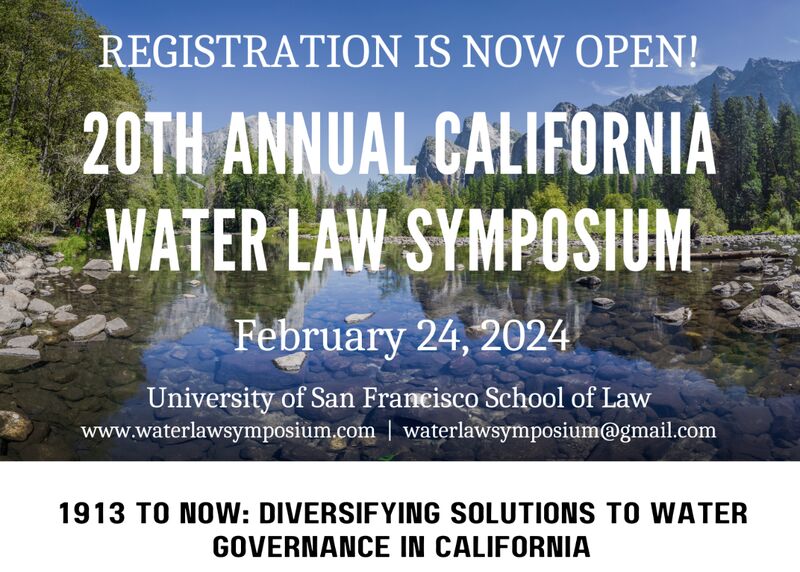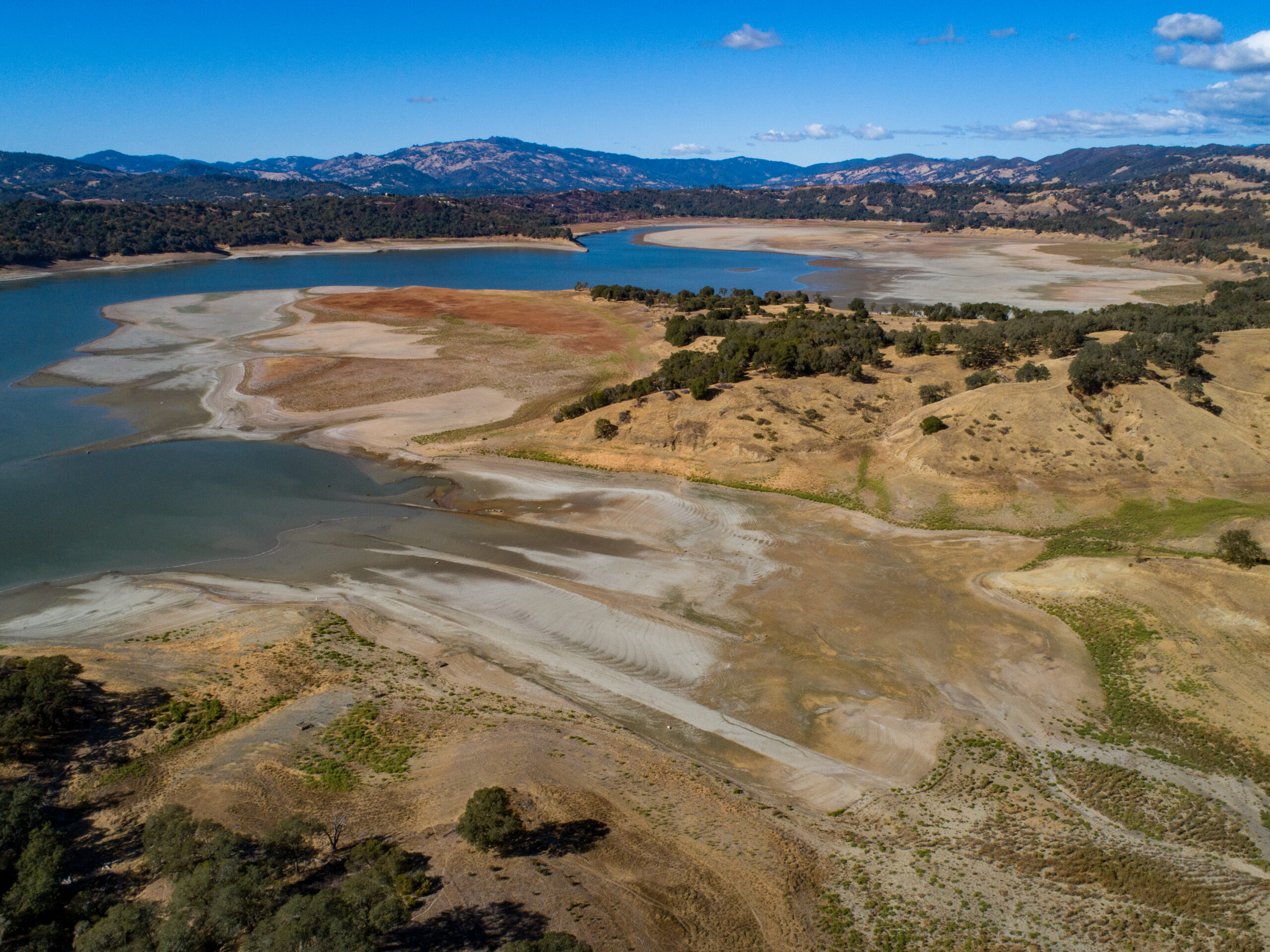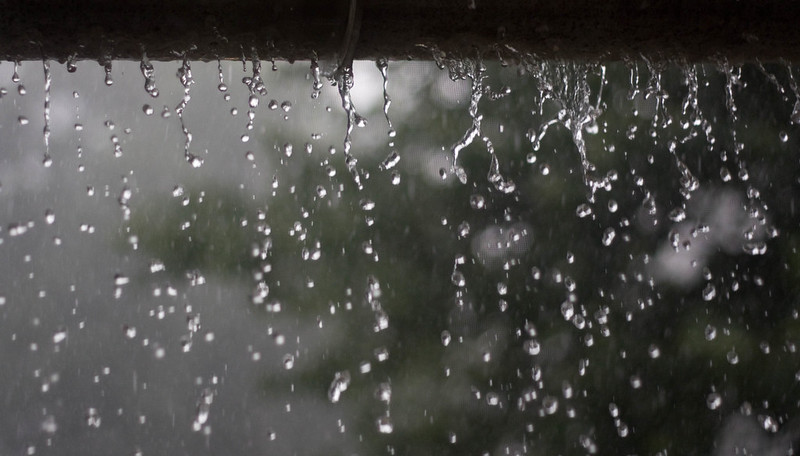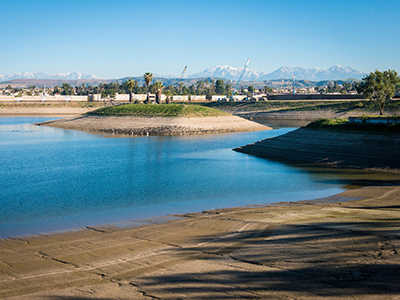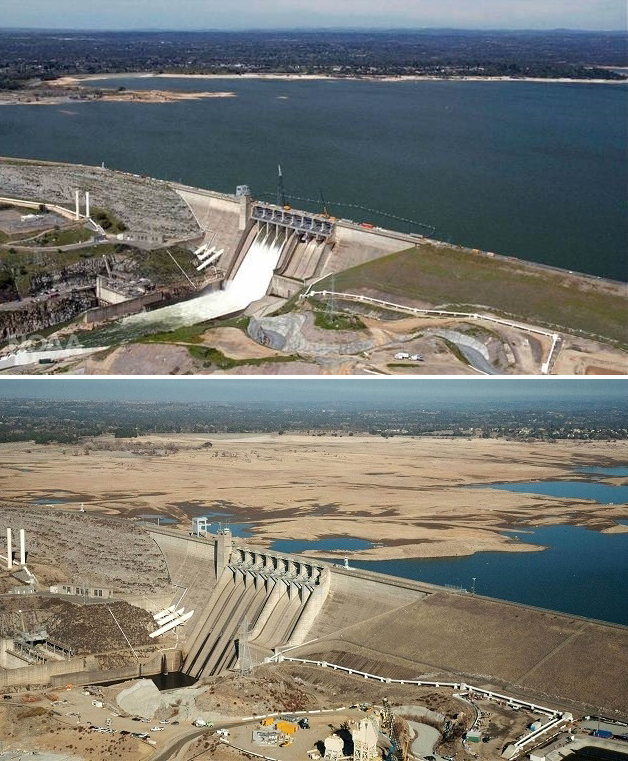water rights
Meeting information needs for water markets: Understanding water diversion and use
New CLEE report examines a prerequisite for fair and effective water markets
by Nell Green Nylen and Molly Bruce Water scarcity is a growing problem for agriculture and ecosystems across the U.S. Southwest. In many areas, unsustainable water use has overstretched local water supplies, and climate change is making these supplies more volatile. Water markets have the potential to enhance climate resilience by helping water users adapt …
CONTINUE READINGCalifornia Water Law Symposium is this Saturday in San Francisco
This student-organized event will focus on “Diversifying Solutions to Water Governance in California”
If you’re interested in California water, the 20th Annual California Water Law Symposium is a great way to spend this Saturday! The symposium is a collaborative student-run event that consistently brings together leading minds in water law and policy to discuss California’s critical water issues. Students from 7 northern California law schools—led by a stellar …
Continue reading “California Water Law Symposium is this Saturday in San Francisco”
CONTINUE READINGCalifornia Courts Foil Westlands Water District’s Grinch-Like Water Grab
Westlands’ Efforts to Permanently Privatize California Water Opposed by Unique Coalition & Rejected by Skeptical Judges
While there’s a great deal that’s dysfunctional and downright wrong about water law and policy in California, occasionally there are positive developments to report. So it’s most satisfying to end 2023 with some good news regarding water in the Golden State. This is the saga of how the Westlands Water District tried to privatize a …
Continue reading “California Courts Foil Westlands Water District’s Grinch-Like Water Grab”
CONTINUE READINGTo Manage Water Scarcity, California Needs a Framework for Fair and Effective Water Right Curtailment
by Nell Green Nylen, Dave Owen, Jennifer Harder, Michael Kiparsky, and Michael Hanemann
After three years of drought, a parade of storms brought flooding, landslides, and a massive snowpack to California. With water temporarily so abundant, it is tempting to push planning for water scarcity to the back burner. But California does not have this luxury. The state’s water management challenges during wet and dry times interrelate, and …
CONTINUE READINGThe Latest Chapter in Los Angeles’ Century-Long Water War With the Eastern Sierra’s People & Environment
LADWP’s Unilateral Revocation of Water Allocation to Mono County’s Farmers & Ranchers Triggers County’s CEQA Challenge
There LADWP goes again. Recently the Los Angeles Department of Water and Power announced it was walking away from its longstanding obligation to provide Mono County residents and the environment with a tiny fraction of the water it transports from Mono County to LADWP’s urban customers in Los Angeles. When efforts by county officials to …
CONTINUE READINGWhen does a groundwater recharge project NOT need a water right?
by Kate Fritz and Nell Green Nylen
Groundwater recharge projects already play an important role in California. That role is about to expand rapidly, as local groundwater managers begin to take more concrete actions to meet their responsibilities under California’s landmark Sustainable Groundwater Management Act (SGMA). As we mentioned in our last post, an important part of developing a successful recharge project …
Continue reading “When does a groundwater recharge project NOT need a water right?”
CONTINUE READINGWater right permitting options for groundwater recharge: Avoiding unintended consequences
by Kate Fritz and Nell Green Nylen
Efforts to boost groundwater recharge are critical to making California’s limited, and increasingly volatile, water resources go further. Recharge is playing a growing role in maintaining groundwater as an effective drought reserve and in slowing or reversing the effects of years of unsustainable groundwater pumping. But implementing recharge projects is not easy. Water managers face …
CONTINUE READINGMaking Key Policy Decisions in Advance of Droughts
Part 6 in a Series on Improving California Water Rights Administration and Oversight for Future Droughts
It’s hard to respond effectively to a crisis when you don’t have clearly defined priorities. This is true for sudden-onset crises, like floods and wildfires, and also for slow-onset crises, like droughts. My recent posts have explored why the State Water Resources Control Board (Board) should develop a contingency-based framework to support its drought decisions …
Continue reading “Making Key Policy Decisions in Advance of Droughts”
CONTINUE READINGDeveloping a Decision-Support Framework for Curtailment
Part 5 in a Series on Improving California Water Rights Administration and Oversight for Future Droughts
During a drought, California’s limited water supplies should be allocated transparently, efficiently, and predictably in accordance with the priorities that flow from state and federal law. But what does this mean in practice? What happens when there is not enough surface water to go around in a watershed? California water rights law says that certain …
Continue reading “Developing a Decision-Support Framework for Curtailment”
CONTINUE READINGA Contingency-Based Framework to Support Drought Decision Making
Part 4 in a Series on Improving California Water Rights Administration and Oversight for Future Droughts
In my last post, I outlined actions the State Water Resources Control Board (Board) can take to improve its future drought response capabilities. Our core recommendation is for the Board to bring greater predictability, timeliness, and effectiveness to water rights administration and oversight during droughts by proactively developing a contingency-based framework to support its drought …
Continue reading “A Contingency-Based Framework to Support Drought Decision Making”
CONTINUE READING




